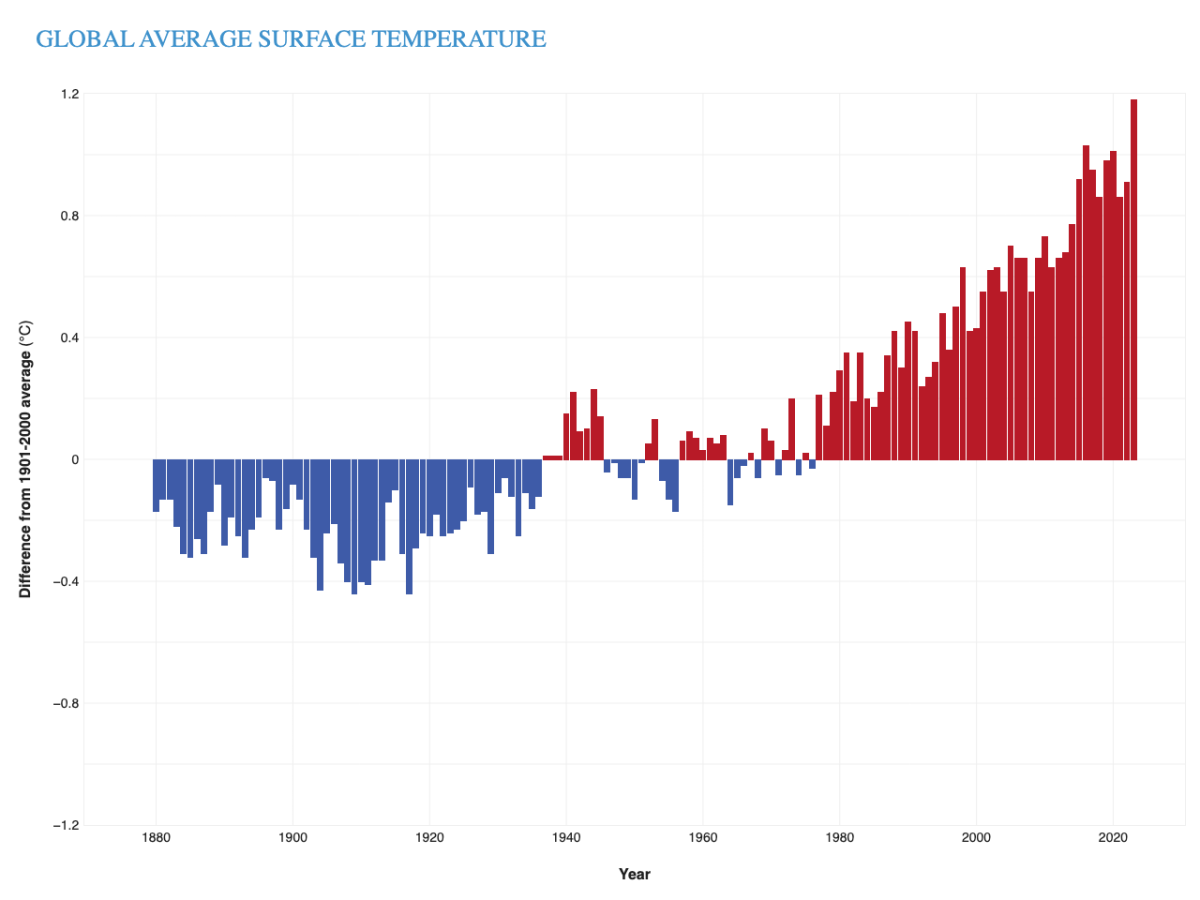As climate change continues to worsen, with the 10 warmest years in history occurring in the past decade, the importance of solving the climate crisis is more dire than ever. With mass attention being brought to finding ways to prevent the issue from hitting an irreversible tipping point, the most effective solution is addressing the problem through an economic perspective.
Although governments have begun to shift subsidies away from fossil fuels and towards renewable energy, the action taken is not enough to limit the global temperature increase to 1.5 degrees Celsius, which is the designated threshold countries in the Paris Agreement agreed to try to stay below. The only way to meet this goal is by cutting greenhouse gas emissions to zero by 2035, which can only be achieved by pushing more dramatic changes in government funding.
According to the International Monetary Fund, the world subsidized fossil fuels by 7 trillion dollars in 2023, but only spent 1.8 trillion dollars on renewable energy. While climate change poses a threat to millions of lives, governments around the globe still neglect the crisis, as fossil fuels are perceived to be the cheapest energy source and create much more profit.
Many countries subsidize and provide tax breaks for fossil fuel consumption in order to lower the costs of fossil fuel prices as well as the costs of producing fossil fuels. However, a report by the International Renewable Energy Agency shows that most renewable power actually has lower production costs than fossil fuel options.
This shows that this problem of climate change does not deal with the costs of energy, but is instead because of global culture that is reliant on fossil fuels. In order to eliminate this dangerous global dependency on fossil fuels, all countries must shift subsidies from fossil fuels to renewable energy to a much more substantial extent.
Increasing government economic support for renewable energy would be extremely effective in moving the world away from fossil fuels. In a study conducted by ScienceDirect, it was found that increasing profit incentives for renewable energy by 1% increased production of renewable energy by 0.4 – 1%.
In order for this shift to occur worldwide, however, encouragement from an international organization, like the United Nations, would be needed. While the U.S. has made significant progress in shifting subsidies, as 77% of their energy subsidies goes to renewable sources, many notable carbon dioxide emitters lack in the economic battle.
For example, China spends 12.5% of the country’s GDP on fossil fuel subsidies, amounting to 2.2 trillion dollars subsidized total. On the other hand, China only spends 607.26 million dollars on renewable energy subsidies, highlighting the significance of the problem outside of the U.S.
If the UN placed quotas on the amount of funding that governments can provide towards fossil fuels, countries around the world would be pressured into shifting the dependence of their economies towards renewable energy.
Mitigating the effects of climate change via economic support would be extremely beneficial, as shifting subsidies away from fossil fuels could cut carbon dioxide emissions by 43% below the baseline level by 2030. In order to reach “net zero” carbon emissions by 2050, a dramatic change in government funding is needed worldwide.
Shifting subsidies towards sustainability is even argued for by government officials, as U.S. Senator Sheldon Whitehouse explains that with the world’s current state of government energy funding, “We are subsidizing the danger.” The senator explained that subsidized oil and gas has worsened air pollution, caused 8.7 million premature deaths annually, and has also caused costly natural disasters, underlining the importance of increasing support for renewable resources.
Ultimately, in order to save millions of lives from the devastating effects of climate change, battling world dependence on fossil fuels through an economic perspective is needed. By using the UN’s broad reach of influence, governments around the world can be pressured into shifting their government subsidies away from fossil fuels and towards renewable energy, thus perpetuating a more prosperous and sustainable future.








